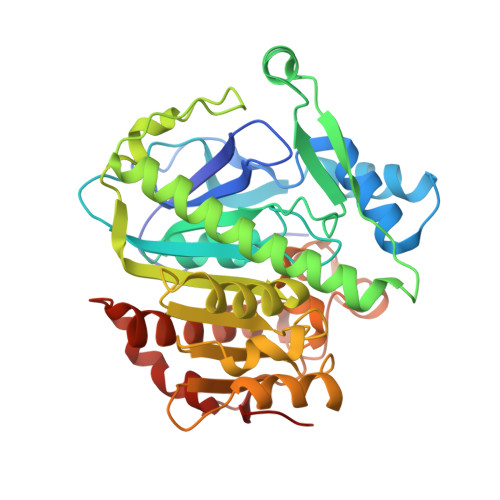Identification of Highly Selective Lipoprotein-Associated Phospholipase A2 (Lp-PLA2) Inhibitors by a Covalent Fragment-Based Approach.
Huang, F., Hu, H., Wang, K., Peng, C., Xu, W., Zhang, Y., Gao, J., Liu, Y., Zhou, H., Huang, R., Li, M., Shen, J., Xu, Y.(2020) J Med Chem 63: 7052-7065
- PubMed: 32459096
- DOI: https://doi.org/10.1021/acs.jmedchem.0c00372
- Primary Citation of Related Structures:
6M06, 6M07, 6M08 - PubMed Abstract:
Covalent ligands are of great interest as therapeutic drugs or biochemical tools. Here, we reported the discovery of highly selective and irreversible inhibitors of lipoprotein-associated phospholipase A2 (Lp-PLA2) using a covalent fragment-based approach. The crystal structure of Lp-PLA2 in complex with a covalent fragment not only reveals the covalent reaction mechanism but also provides a good starting point to design compound 8 , which has a more than 130,000-fold and 3900-fold increase in potency and selectivity, respectively, compared to those of the covalent fragment. Furthermore, fluorescent probes with high selectivity and sensitivity are developed to characterize Lp-PLA2 and its enzymatic activity in vitro or even in living cells in a way more convenient than immunoblotting tests or immunofluorescence imaging. Overall, we provide a paradigm for application of the covalent fragment-based strategy in covalent ligand discovery and the advantage of enol-cyclocarbamate as a new warhead in designing covalent inhibitors of serine hydrolases.
- State Key Laboratory of Drug Research, Chinese Academy of Sciences, Shanghai 201203, China.
Organizational Affiliation:

















